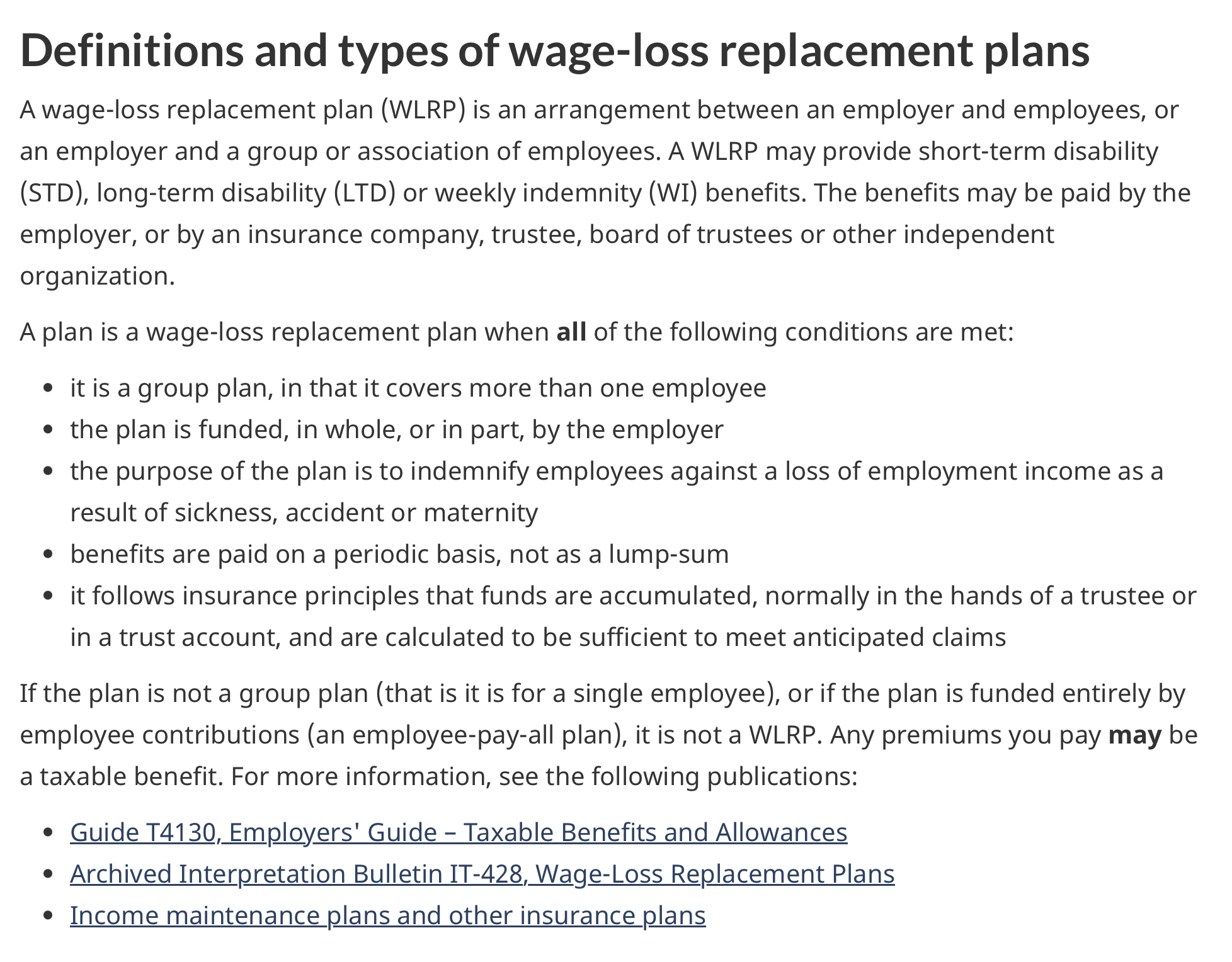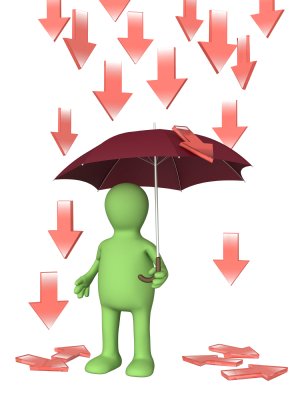- Essential Bookkeeping Habits For Audit Ready Books in Canada
- Payroll Manual
- Employee Taxable Benefits

Overview of Employee Taxable Benefits and Allowances
An Introduction To Canadian Payroll Tax Deductions
By L.Kenway BComm CPB Retired
This is the year you get all your ducks in a row! Start by starting.
Published January 2014 | Edited June 4, 2024
I'm not an expert on payroll. I just want to introduce to payroll items / issues you need to keep on your radar.
Highlights Of This Post
Enjoy a sipping on a cool glass of lemon water while you browse through my reference notes on Canadian payroll deductions.
- General Notes on Payroll Deductions
- Employee Taxable Benefits Rules ... find an indispensable benefits chart
- Rules for Gifts and Awards
- Wage Loss Replacement Benefits ... explains policy change on CPP contributions
- Wage Loss Replacement Plans and Benefits ... Disability Income Insurance
- Online Automobile Benefits Calculator ... assists with standby charges
- ASPE and Employee Bonus Programs
- Employee Taxable Benefits Rule Revisions
- Employee Taxable Benefits - Educational Amounts
Other Articles On Canadian Payroll
- Terminating an Employee ... and sample employment contract
- Employee Taxable Benefits - Employer Provided Cell Phones and Employee Owned Cell Phones
Dig Deeper Into Other Payroll Issues
Canadian Payroll Manual
Where do you want to go next?
More >> Payroll Filing Deadlines
General Payroll Tax Deductions
In the Introduction to Payroll, I covered what to do if you are new to payroll administration, steps to hiring your first employee as well as the employment status test CRA performs to determine whether a worker is an employee or self-employed.
An often asked question is, "Does a sole proprietor contribute to CPP?" The answer is yes but not in the same way as your employees. The sole proprietor's CPP contributions are calculated on Schedule 8 of your T1 return.
If you are a sole proprietor, the employer portion of CPP contributions and EI premiums (often referred to as payroll taxes) paid for your employees are a payroll tax deduction. They are reported on Line 9060 or Line 8340 of Form T2125 when you prepare your annual tax return.
More >> Canadian Self-Employment Taxes
In this article I'd like to look at employee taxable benefits and allowances.
Employee Taxable Benefits and Allowances
An Indispensable Benefits Chart
CRA's publication T4130 Employers' Guide - Taxable Benefits and Allowances has a benefits chart on the last two pages which is indispensable when working with taxable benefits.
CRA's chart shows a comprehensive list of benefits ... showing when you need to include GST/HST on the benefit/allowance and when you are required to withhold CPP & EI, along with the T4 codes.
The benefits chart is located on the CRA website at Forms and Publications>Publications listed by publication number> T> T4130. Download it to your desktop or bookmark for easy reference.
The CRA website also has an online search filter to determine if a benefit is taxable.
General Rules For Cash
Generally, cash allowances are NOT subject to GST/HST but non-cash benefits and cash reimbursements ARE subject to GST/HST ... unless they are exempt or zero rated.
Check the benefits chart to be sure. You'll also be interested in the next topic to be discussed ... Gifts and Awards.
CRA Rules for Gifts and Awards
Make Fewer Payroll Errors With This Tool
Are you aware of this excellent CRA payroll tax deductions tool?
On July 22, 2010, CRA published an online series of nine questions for YOU to answer with the click of your mouse ... to help employers determine if employer provided awards and gifts are taxable benefits to employees.
Each question requires you click "yes" or "no". Depending on your selection, you are then given another question or directed to a web page with the information you need. It was very cool! (Am I allowed to say that in the twenty first century?!!)
This payroll tax deductions tool was designed for you to use it EACH time you give an award or gift to an employee. Sadly, it looks like they have removed the tool and now you have to wade through various scenarios to find what you are looking for. Picture me with a grumpy face.
General Rules For Gifts and Awards
Cash awards and gifts are always a taxable benefit. This means it is pensionable and insurable so you must deduct CPP contributions, EI premiums and income tax.
Near cash gifts such as stocks, gift certificates or gift cards, are always a taxable benefit. This means it is pensionable so you must deduct CPP contributions and income tax. They are NOT insurable so do NOT deduct EI premiums. When a non-cash gift or award is a taxable benefit, you MUST deduct CPP contributions and income tax.
To find out to treat cash received is not a gift or reward, see the benefits chart discussed earlier.
You can find the Q&A series on the CRA website under Businesses> Payroll> Benefits and allowances> Gifts, awards and social events > Rules for gifts and awards. Look midway down the page and click on "Answer a few questions".
AUDIT READY
The CRA website has updated their administrative policy on non-cash gifts and awards. They have also introduced some new administrative policies. Please take the time to look it up to ensure you are working with the latest rules. For example one of their new policies is "Certain gift cards which cannot be converted to cash can be treated as non-cash for the purposes of our gifts and awards policy."
Wage Loss Replacement Benefits
Policy Change
The Knowledge Bureau often has excellent analysis about changes to payroll tax deductions.
In the Knowledge Bureau's January 19, 2011 e-News, there was information on CRA's policy change on Wage Loss Replacement Benefits due to the court case Toronto Transit Commission v. Canada.
The policy change was in regards CPP contributions.
"Wage-loss benefits paid by an employer, a trustee or an insurance company are not (my emphasis) subject to CPP contributions."
The Knowledge Bureau article titled Wage Loss Replacement Benefits explained "Past year overpayments must be requested via Form PD24 within 4 years of the end of the tax year in which the overpayment occurred."
To get up-to-date information on wage-loss replacement plans, visit the CRA website at Tax> Payroll> Special payments. Below is their current definition of a wage-loss replacement plan.
 Source: CRA website Wage-loss replacement plans June 2024
Source: CRA website Wage-loss replacement plans June 2024Good To Know
Wage Loss Replacement Plans and Benefits
Disability Income Insurance

Here is an important Canadian payroll tax deduction reminder that's easy to forget. It is beneficial to have the employee pay the disability premiums.
While web surfing for something else, I came across a good tip from the Canadian Payroll Association I knew about but had forgotten since I no longer have a disability plan ... For an employee to receive tax-free third party short term and long term disability benefits, the payroll deduction must be paid by the employee.
If the employer chooses to pay these third party disability premiums on behalf of the employee, the insurance benefits will be taxable. The same applies if the employer funds their own short and long term disability program ... the benefits paid to the employee will be subject to tax.
There is some good news though if the employer paid part of the premiums. The employee can claim a deduction on line 229 of their T1 for all premiums paid since 1968 that have not already been previously claimed.
If the corporation pays a shareholder's disability income insurance premiums, the amount paid is subject to Subsection 15(1) and must be included in the shareholder's income. This means any benefits received by the shareholder would be tax free however the premium is NOT deductible by the corporation.
To learn more about this, read the CRA Income Tax Interpretation Bulletin IT-428 Wage Loss Replacement Plans.
CRA Online Automobile Benefits Calculator
This Tool Makes Your Life Easier
Here's is great payroll tax deduction tool to help you determine the automobile benefit amount you should prorate to an employee's pay periods is ... CRA's online automobile benefits calculator.
It is located at Canada.ca>Taxes> Digital Services> Digital Services for Businesses> Automobile Benefits Online Calculator.
ASPE Update
Employee Bonus Programs ... and ASPE
Have you wondered if the new Accounting Standards for Private Enterprise (ASPE)that came into effect on January 1, 2011 affected reporting of your employee bonus programs?
Grant Thornton (www.grantthornton.ca), in their Catalyst Winter 2010 newsletter, says perhaps ... it will depend how net income is calculated under the program.
BDO has an excellent ASPE - IFRS comparison of employee benefits. It is very comprehensive. It includes a differential scale of 4 which means there are significant differences between the two standards. You can download the publication for future reference.
Employee Taxable Benefits Rules Revised
Here is an important payroll tax deduction update notice.
CRA released Income Tax Technical News No. 40 on June 11, 2009. There were numerous changes to employee taxable benefits.
- non-cash gifts and awards to employees of up to $500 per year are now tax free (June 2024 - please check the CRA website as they have recently clarified their administrative policies in this area);
- rules were revised regarding loyalty programs like frequent flyer point (June 2024 - the website says points redeemed by the employee are a taxable benefit);
- new rules were issued for an employer vehicle that must be taken home at night;
- transit passes to family members of transit employees are now a taxable benefit to the employee (June 2024 You can claim the Public Transit Tax Credit - check box 84 of your T4 slip);
- overtime hours needed to qualify for the tax-free meal allowance were reduced; and
- employee allowances for travel within a municipality may not have to be reported in certain circumstances.
Employee Taxable Benefits Change For
Education Related Benefits
This payroll tax deduction update needs to be on your radar.
Due to 2009 CRA court cases, CRA changed its position on educational amounts paid to an employee's family member. Previously, these amounts were included on the employee's T4 slip as a taxable benefit. Retroactive to 2007, these amounts are now included on a T4A slip made out to the employee's family member.
This means the money will be treated as a scholarship with the possibility it will be tax free. Since 2006, scholarships are tax free if the student is eligible to claim the non-refundable education tax credit.
Go to the CRA website Taxes> Payroll> Calculate payroll deductions and contributions > What is a taxable benefit> Educational assistance for more information.
Back to top














